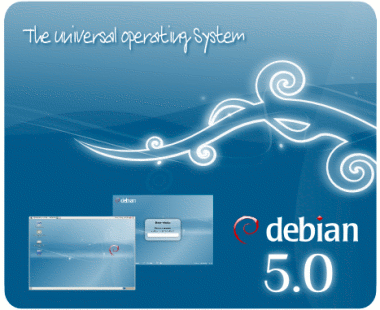Debian GNU/Linux 5.0 released
2009-02-16

The Debian Project is pleased to announce the official release of Debian GNU/Linux version 5.0 (codenamed Lenny) after 22 months of constant development. Debian GNU/Linux is a free operating system which supports a total of twelve processor architectures and includes the KDE, GNOME, Xfce, and LXDE desktop environments. It also features compatibility with the FHS v2.3 and software developed for version 3.2 of the LSB.
Debian GNU/Linux runs on computers ranging from palmtops and handheld systems to supercomputers, and on nearly everything in between. A total of twelve architectures are supported: Sun SPARC (sparc), HP Alpha (alpha), Motorola/IBM PowerPC (powerpc), Intel IA-32 (i386), IA-64 (ia64), HP PA-RISC (hppa), MIPS (mips, mipsel), ARM (arm, armel), IBM S/390 (s390), and AMD64 and Intel EM64T (amd64).
Debian GNU/Linux 5.0 Lenny adds support for Marvell's Orion platform which is used in many storage devices. Supported storage devices include the QNAP Turbo Station series, HP Media Vault mv2120, and Buffalo Kurobox Pro. Additionally, Lenny now supports several Netbooks, in particular the Eee PC by Asus. Lenny also contains the build tools for Emdebian which allow Debian source packages to be cross-built and shrunk to suit embedded ARM systems.
Debian GNU/Linux 5.0 Lenny includes the new ARM EABI port, armel. This new port provides a more efficient use of both modern and future ARM processors. As a result, the old ARM port (arm) has now been deprecated.
Well i've been using testing-lenny for such a long time that this release doesn't bring really something new or real joy stuff...but hey it's a release. :lol:
The Debian time frame of years between stable releases gets kinda disturbing at some point but you can't really blame the Debian project because they have other goals in mind like stability, portability, longer support for a stable release and wide variety of packages already available and supported. If you want something different then you are always welcome to use other distributions like Fedora or Ubuntu which have a faster pace at releasing stable versions.